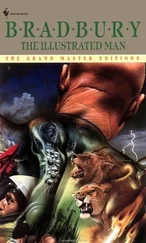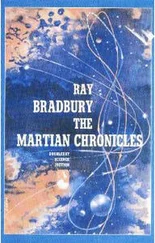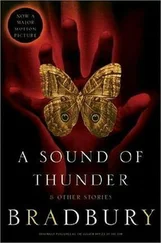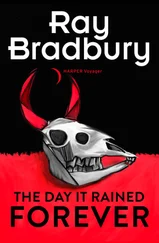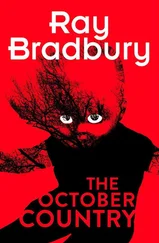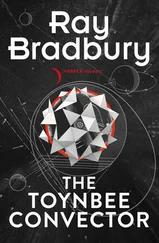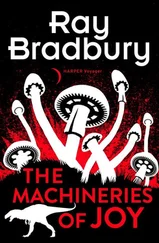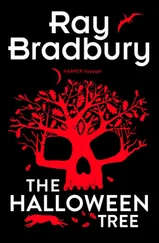Ray Bradbury - The Fog Horn
Здесь есть возможность читать онлайн «Ray Bradbury - The Fog Horn» весь текст электронной книги совершенно бесплатно (целиком полную версию без сокращений). В некоторых случаях можно слушать аудио, скачать через торрент в формате fb2 и присутствует краткое содержание. Жанр: Старинная литература, на английском языке. Описание произведения, (предисловие) а так же отзывы посетителей доступны на портале библиотеки ЛибКат.
- Название:The Fog Horn
- Автор:
- Жанр:
- Год:неизвестен
- ISBN:нет данных
- Рейтинг книги:4 / 5. Голосов: 1
-
Избранное:Добавить в избранное
- Отзывы:
-
Ваша оценка:
- 80
- 1
- 2
- 3
- 4
- 5
The Fog Horn: краткое содержание, описание и аннотация
Предлагаем к чтению аннотацию, описание, краткое содержание или предисловие (зависит от того, что написал сам автор книги «The Fog Horn»). Если вы не нашли необходимую информацию о книге — напишите в комментариях, мы постараемся отыскать её.
The Fog Horn — читать онлайн бесплатно полную книгу (весь текст) целиком
Ниже представлен текст книги, разбитый по страницам. Система сохранения места последней прочитанной страницы, позволяет с удобством читать онлайн бесплатно книгу «The Fog Horn», без необходимости каждый раз заново искать на чём Вы остановились. Поставьте закладку, и сможете в любой момент перейти на страницу, на которой закончили чтение.
Интервал:
Закладка:
The Emperor, the servant, and the flier paused within the huge garden.
The Emperor clapped his hands. “Ho, guards!” The guards came running. “Hold this man.” The guards seized the flier. “Call the executioner,” said the Emperor. “What’s this!” cried the flier, bewildered. “What have I done?” He began to weep, so that the beautiful paper apparatus rustled.
“Here is the man who has made a certain machine,” said the Emperor, “and yet asks us what he has created. He does not know himself. It is only necessary that he create, without knowing why he has done so, or what this thing will do.”
The executioner came running with a sharp silver ax. He stood with his naked, large-muscled arms ready, his face covered with a serene white mask.
“One moment,” said the Emperor. He turned to a nearby table upon which sat a machine that he himself had created. The Emperor took a tiny golden key from his own neck. He fitted his key to the tiny, delicate machine and wound it up. Then he set the machine going.
The machine was a garden of metal and jewels. Set in motion, the birds sangs in tiny metal trees, wolves walked through miniature forests, and tiny people ran in and out of sun and shadow, fanning themselves with miniature fans, listening to tiny emerald birds, and standing by impossibly small but tinkling fountains.
“Is It not beautiful?” said the Emperor. “If you asked me what I have done here, I could answer you well. I have made birds sing, I have made forests murmur, I have set people to walking in this woodland, enjoying the leaves and shadows and songs. That is what I have done.”
“But, oh, Emperor!” pleaded the flier, on his knees, the tears pouring down his face. “I have done a similar thing! I have found beauty. I have flown on the morning wind. I have looked down on all the sleeping houses and gardens. I have smelled the sea and even seen it, beyond the hills, from my high place. And I have soared like a bird; oh, I cannot say how beautiful it is up there, in the sky, with the wind about me, the wind blowing me here like a feather, there like a fan, the way the sky smells in the morning! And how free one feels! That is beautiful, Emperor, that is beautiful too!”
“Yes,” said the Emperor sadly, “I know it must be true. For I felt my heart move with you in the air and I wondered: What is it like? How does it feel? How do the distant pools look from so high? And how my houses and servants? Like ants? And how the distant towns not yet awake?”
“Then spare me!”
“But there are times,” said the Emperor, more sadly still, “when one must lose a little beauty if one is to keep what little beauty one already has. I do not fear you, yourself, but I fear another man.”
“What man?”
“Some other man who, seeing you, will build a thing of bright papers and bamboo like this. But the other man will have an evil face and an evil heart, and the beauty will be gone. It is this man I fear.”
“Why? Why?”
“Who is to say that someday just such a man, in just such an apparatus of paper and reed, might not fly in the sky and drop huge stones upon the Great Wall of China?” said the Emperor.
No one moved or said a word.
“Off with his head,” said the Emperor.
The executioner whirled his silver ax.
“Burn the kite and the inventor’s body and bury their ashes together,” said the Emperor.
The servants retreated to obey.
The Emperor turned to his hand-servant, who had seen the man flying. “Hold your tongue. It was all a dream, a most sorrowful and beautiful dream. And that farmer in the distant field who also saw, tell him it would pay him to consider it only a vision. If ever the word passes around, you and the farmer die within the hour.”
“You are merciful, Emperor.”
“No, not merciful,” said the old man. Beyond the garden wall he saw the guards burning the beautiful machine of paper and reeds that smelled of the morning wind. He saw he dark smoke climb into the sky. “No, only very much bewildered and afraid.” He saw the guards digging a tiny pit wherein to bury the ashes. “What is the life of one man against those of a million others? I must take solace from that thought.”
He took the key from its chain about his neck and once more wound up the beautiful miniature garden. He stood looking out across the land at the Great Wall, the peaceful town, the green fields, the rivers and streams. He sighed. The tiny garden whirred its hidden and delicate machinery and set itself in motion; tiny people walked in forests, tiny faces loped through sun-speckled glades in beautiful shining pelts, and among the tiny trees flew little bits of high song and bright blue and yellow colour, flying, flying, flying in that small sky.
“Oh,” said the Emperor, closing his eyes, “look at the birds, look at the birds!”
1953
Music moved with him in the white halls. He passed an office door: “The Merry Widow Waltz.” Another door: “Afternoon of a Faun.” A third: “Kiss Me Again.” He turned into a cross corridor: “The Sword Dance” buried him in cymbals, drums, pots, pans, knives, forks, thunder, and tin lightning. All washed away as he hurried through an anteroom where a secretary sat nicely stunned by Beethoven’s Fifth. He moved himself before her eyes like a hand, she didn’t see him.
His wrist radio buzzed.
“Yes?”
“This is Lee, Dad. Don’t forget about my allowance.”
“Yes, son, yes. I’m busy.”
“Just didn’t want you to forget, Dad,” said the wrist radio. Tchaikovsky’s “Romeo anil Juliet” swarmed about the voice and flushed into the long halls.
The psychiatrist moved in the beehive of offices, in the cross-pollination of themes, Stravinsky mating with Bach, Haydn unsuccessfully repulsing Rachmaninoff, Schubert slain by Duke Ellington. He nodded to the humming secretaries and the whistling doctors, fresh to their morning work. At his office he checked a few papers with his stenographer, who sang under her breath, then phoned the police captain upstairs. A few minutes later a red light hunked, a voice said from the ceiling:
“Prisoner delivered to Interview Chamber Nine.”
He unlocked the chamber door, stepped in, heard the door lock behind him.
“Go away,” said the prisoner, smiling.
The psychiatrist was shocked by that smile. A very sunny, pleasant warm thing, a thing that shed bright light upon the room. Dawn among the dark hills. High noon at midnight, that smile. The blue eyes sparkled serenely above that display of self-assured dentistry.
“I’m here to help you,” said the psychiatrist, frowning. Something was wrong with the room. He had hesitated the moment he entered. He glanced around. The prisoner laughed. “If you’re wondering why it’s so quiet in here, I just kicked the radio to death.”
Violent, thought the doctor.
The prisoner read this thought, smiled, put out a gentle hand. “No, only to machines that yak-yak-yak.”
Bits of the wall radio’s tubes and wires lay on the gray carpeting. Ignoring these, feeling that smile upon him like a heat lamp, the psychiatrist sat across from his patient in the unusual silence which was like the gathering of a storm.
“You’re Mr. Albert Brock, who calls himself The Murderer?”
Brock nodded pleasantly. “Before we start….” He moved quietly and quickly to detach the wrist radio from the doctor’s arm. He tucked it in his teeth like a walnut, gritted and heard it crack, banded it back to the appalled psychiatrist as if he had done them both a favor. “That’s better.”
The psychiatrist stared at the ruined machine. “You’re running up quite a damage bill.”
“I don’t care,” smiled the patient. “As the old song goes: “Don’t Care What Happens to Me!” He hummed it.
Читать дальшеИнтервал:
Закладка:
Похожие книги на «The Fog Horn»
Представляем Вашему вниманию похожие книги на «The Fog Horn» списком для выбора. Мы отобрали схожую по названию и смыслу литературу в надежде предоставить читателям больше вариантов отыскать новые, интересные, ещё непрочитанные произведения.
Обсуждение, отзывы о книге «The Fog Horn» и просто собственные мнения читателей. Оставьте ваши комментарии, напишите, что Вы думаете о произведении, его смысле или главных героях. Укажите что конкретно понравилось, а что нет, и почему Вы так считаете.

